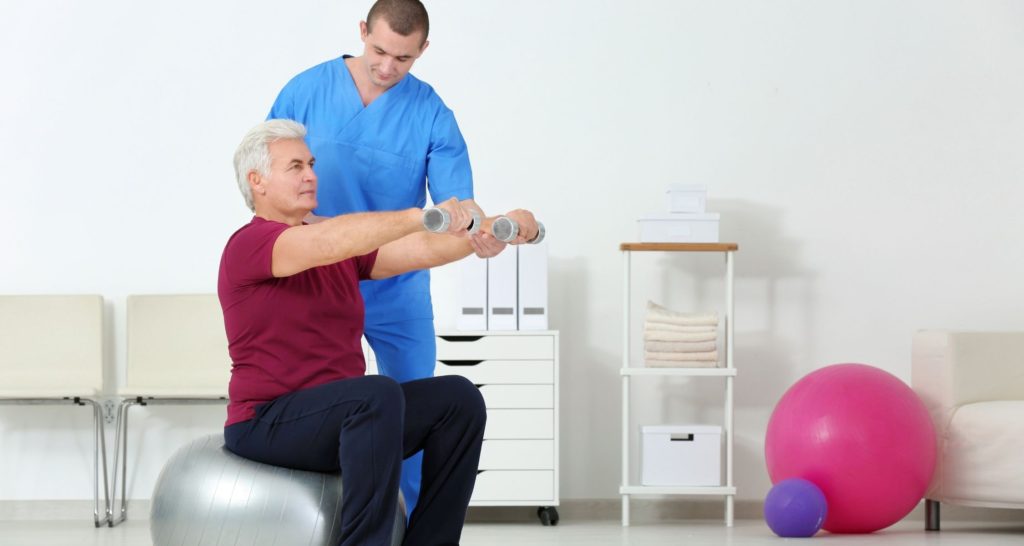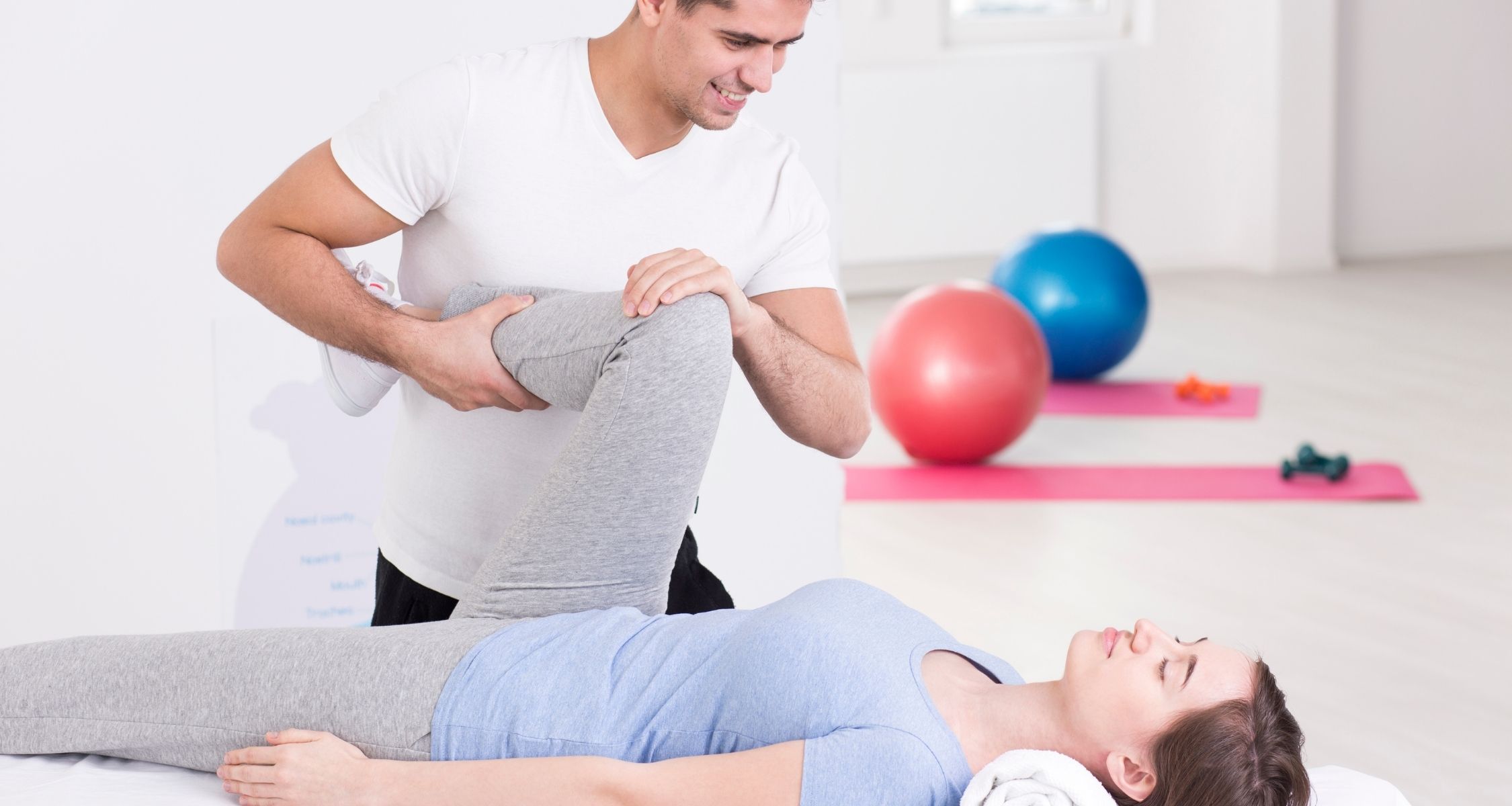Table of Contents:
- What is vestibular rehabilitation therapy (VRT)?
- VRT Indications
- What Types of Issues Can Be Addressed Through VRT?
- Is Vestibular Rehabilitation Therapy an Appropriate Treatment for Me?
What is vestibular rehabilitation therapy (VRT)?
Vestibular rehabilitation therapy (VRT) is a specialized type of therapy used to treat vestibular disorders. It is an exercise-based program with the primary goal of alleviating vertigo and dizziness, visual disturbance, and/or imbalance, and falls. The central nervous system can compensate for the inner ear’s diminished function when the vestibular system is injured. In essence, the brain compensates for the disorienting signals from the vestibular system by learning to rely more on signals from other systems in the body to maintain balance. This is accomplished through a variety of exercise strategies, which are detailed below. Compensation can alleviate the patient’s symptoms, allowing them to resume normal function.
VRT Indications
The following conditions are indicated for VRT:
A vestibular lesion that is stable
VRT is indicated for any condition characterized by a stable vestibular deficit. There is no evidence of progressive loss of function, and the patient’s natural compensatory process appears to be insufficient.
Central lesions or mixed central and peripheral lesions
Patients with stable CNS lesions or a combination of central and peripheral lesions should not be excluded from treatment. However, their prognoses are likely to be less favourable than those with a stable peripheral injury on average. There is a trend for mixed central-peripheral disease to perform worse than pure unilateral peripheral disease, but no significant differences have been identified.
Head injury
Patients who have suffered a concussion suffer significant disability as a result of vestibular symptoms. Their conditions frequently involve both the cognitive and central vestibular systems in addition to a peripheral component. Thus, VRT techniques are used in conjunction with a comprehensive, multidisciplinary head injury program.
Psychogenic vertigo
Patients who have panic disorder or another anxiety disorder frequently seek treatment for vague vestibular symptoms. VRT may be recommended as an adjunctive measure for their condition following an appropriate evaluation. If the anxiety is mild, VRT acts similarly to exposure therapy in the treatment of phobias. If there is a significant anxiety component, particularly if frequent panic attacks, an additional psychiatric intervention will be required.
Elderly with dizziness
In older adults with dizziness but no documented vestibular deficits, supplementing standard balance rehabilitation with vestibular-specific gaze stability exercises results in a greater reduction in fall risk.
Vertigo of unknown etiology
It is not always possible for the physician to differentiate between stable vestibular disease with insufficient central compensation and unstable labyrinthine function. If the cause of vertigo remains unknown despite extensive diagnostic efforts, an empirical trial of vestibular physical therapy may be beneficial. Identifying patients whose symptoms are not directly related to a vestibular lesion does not preclude the adjunctive use of vestibular rehabilitation.
What Types of Issues Can Be Addressed Through VRT?
Patients who are typically referred for vestibular rehabilitation have been diagnosed with one of the following vestibular disorders:
- Vertigo in a benign paroxysmal position (BPPV)
- Vestibular Neuritis/Labyrinthitis Vestibular Hypofunction on One Side (UVH)
- Migraine Vestibular
- Persistent Perceptual Dizziness Due to Postural Dizziness (PPPD)
- Debarquement Malady (MDD)
- Cervicogenic Dizziness Following a Concussion (PCS)
- Neurological disorders (i.e., stroke, traumatic brain injury)
- Vestibulopathy with Recurrence
If you have not yet been assessed or diagnosed with a vestibular disorder, the following are some common symptoms that vestibular rehabilitation can help with:
- Diaphoresis (sense of spinning)
- At rest, dizziness
- With head movements, dizziness or altered vision may occur.
- Tightness, stiffness, and/or pain in the neck
- Inconsistency (difficulty getting up or walking without holding onto something)
- Headaches
- Frequently occurring falls
Is Vestibular Rehabilitation Therapy an Appropriate Treatment for Me?
Your physiotherapist will take a detailed history of your symptoms and review any pertinent medical history during your initial appointment. Additionally, your assessment may include objective evaluations such as the following:
your initial appointment. Additionally, your assessment may include objective evaluations such as the following:
- Stability of vision
- Oculomotor activity
- Standing equilibrium
- Walking stability
- Neck mobility and tenderness to various structures in your neck when palpated
- Positional testing of the inner ear
< Previous | Home | Next >



Recent Comments